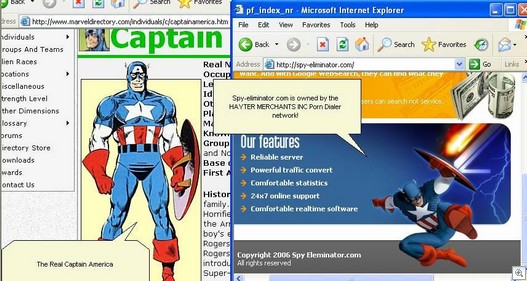Having someone obsessed with you – whether out of anger or unwanted affections – can be a real ordeal, and it’s not just high-profile celebrities who find themselves dealing with a foe or “fan” who won’t let go. Even if the person doesn’t physically threaten you, the fact that someone is following you around, keeping tabs on what you do, and/or contacting you when you want to be left alone is annoying at best and can disrupt your life.
The Internet has opened up a whole new world of opportunities for those with a propensity for this sort of behavior. If you visit chat rooms, participate in discussion boards and email lists, have a web site or otherwise interact with other people on the ‘net, you may eventually find yourself the target of a cyberstalker. Someone who gets angry at you because of the political views you express on your webpage or a list message may start bombarding you with nasty email messages, or someone who likes your web page photo may start sending love letters.
That’s bad enough, but sometimes it escalates beyond online harassment – your stalker may be able to use online resources such as Zabasearch to find out your address and/or phone number. And once he/she knows where you live, if you own your home it’s easy in some places to look you up on the county property tax rolls, many of which are online. These sites include the value of your home, and sometimes also show the floor plans and photos of your home. And if your car happened to be sitting in the driveway the day the tax assessor’s personnel took the picture, your stalker may now know what kind of vehicle you drive and the license plate number. Oh, joy.
Most jurisdictions have laws against harassment and stalking, and these usually are worded to include online activities. For instance, The Texas Stalking By Electronic Communications Act, enacted in 2001, covers sending of any repeated electronic communications in a manner likely to harass, annoy, alarm, abuse, torment, embarrass or offend another. There are a few states that don’t yet have laws that specifically pertain to electronic harassment, but most do. To find out what the law is in your state, see the list of U.S. laws here.
Bills have also been introduced in Congress to make cyberstalking a federal offense, due to the interstate nature of Internet communications. In January 2006, a new Violence Against Women Act was signed into law that amends the federal telecommunications harassment laws in the Communications Act of 1934. The new law makes it a federal crime (punishable by two years in prison and large fines) to anonymously annoy another person using any device or software that can be used to originate telecommunications or other types of communications that are transmitted, in whole or in part, by the Internet.
If you’ve ever been the victim of harassment, this sounds like a good thing – but it has engendered a lot of controversy. Some legal experts argue that this will stifle freedom of speech on the Internet, making it illegal to post “annoying” or “offensive” criticism of a politician on a blog. There is indeed a difference between being offensive and harassing or stalking: someone who flames you on a mailing list is being offensive; someone who sends you dozens of hate mails privately is harassing. The new law doesn’t seem to distinguish between the two.
Others worry that even correctly written laws have a high potential for abuse. If a former boyfriend or girlfriend gets angry at you, he/she could use the emails sent during your relationship (perhaps editing them) and claim that they were unwanted. In fact, anyone who wanted to cause you trouble could send forged threatening or obscene messages to him/herself from a free web mail service and claim you sent them. Other laws, such as the domestic assault laws, have already been misused in this way and the potential for false accusations is even greater when fake evidence is so easy to create.
It’s a fine line to walk. How do we make the Internet a safe place without going too far and creating cures that are worse than the disease? What do you think? Should there be penalties for saying anything offensive about anyone, anytime? Should anonymous email be outlawed altogether? Should there be federal legislation addressing this or is a matter that should be left up to the states? Have you ever been the victim of cyberstalking – or of overly broad cyberstalking laws? Tell us your opinions.
Deb Shinder



